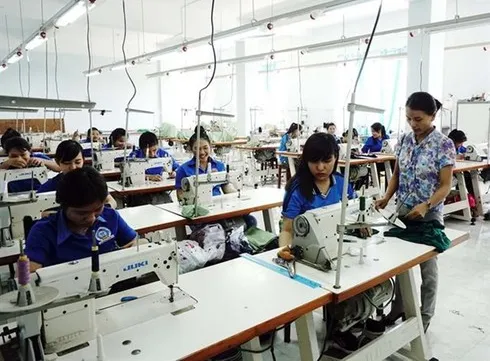Cooperation in vocational training remains loose

A report by the National Assembly Committee for Culture, Education, Youth, Adolescents and Children has pointed out that the partnerships between vocational schools and companies remained loose and unable to satisfy the rising demands of the labour market.
Although the cooperative relations have been improved recently, it is mostly schools asking for on-the-job training opportunities for their students while companies play the role of grace givers.
“Germany’s dual vocational training system gives us a good example for connecting vocational schools and enterprises since it provides a wonderful approach to build capacity for trainees. Some 50 percent of students are offered on-the-job training,” Dong Van Ngoc, Director of the Hanoi Mechanical and Electrical College, told Thanh nien (Young People) Newspaper.
In Vietnam, the cooperation between the two stakeholders has only gained attention since 2011.
“Most companies consider training an expense, not an investment for their sustainable development. Therefore, they tend to use seasonal workers,” said Tran Ngoc Tinh, former director of Viglacera College.
Sharing the opinion, Nguyen Cong Truyen, Director of the Vietnam-Korea Vocational College, said that in most cases schools have to proactively ask companies to collaborate.
“Only a few companies agree to join yet offer students internships with limited remuneration. Some companies even give students jobs which are not suited to their skills,” said Truyen.
Le Dinh Kha, Director of the Cao Thang Technical College in HCM City, stressed the growth mindset of both schools and companies as a key to enhance dual vocational training.
Schools are recommended to collaborate with experts from companies to set goals, graduation requirements, develop curriculums and invest in facilities.
“Syllabuses need frequent updates to keep up with changes in technology. Schools should also research criteria that companies set for their workers, organise job fairs and conduct surveys on students after their internships to understand the labour market’s constantly changing demands,” said Kha.
According to Truyen, the partnership of companies and vocational schools will offer a win-win situation for both.
Companies can pilot the manufacturing of new products at vocational schools, at the same time, enjoy the Government’s preferential policies for their participation in training activities.
Vu Tien Loc, head of the Vietnam Chamber of Commerce and Industry stressed upon companies as the main motivation to accelerate vocational training in Vietnam.
The Government is responsible for developing policies and framework while employers play the role of investor and orientator for the country’s vocational education.
To sustain the cooperation, companies need to join hands in all procedures, from selecting students, training and using workers.
Tags:





